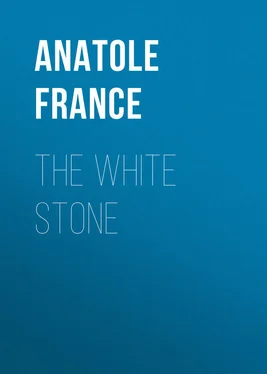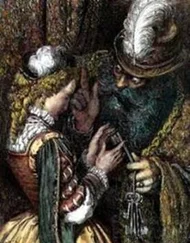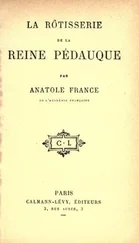Anatole France - The White Stone
Здесь есть возможность читать онлайн «Anatole France - The White Stone» — ознакомительный отрывок электронной книги совершенно бесплатно, а после прочтения отрывка купить полную версию. В некоторых случаях можно слушать аудио, скачать через торрент в формате fb2 и присутствует краткое содержание. Жанр: foreign_antique, foreign_prose, на английском языке. Описание произведения, (предисловие) а так же отзывы посетителей доступны на портале библиотеки ЛибКат.
- Название:The White Stone
- Автор:
- Жанр:
- Год:неизвестен
- ISBN:нет данных
- Рейтинг книги:4 / 5. Голосов: 1
-
Избранное:Добавить в избранное
- Отзывы:
-
Ваша оценка:
- 80
- 1
- 2
- 3
- 4
- 5
The White Stone: краткое содержание, описание и аннотация
Предлагаем к чтению аннотацию, описание, краткое содержание или предисловие (зависит от того, что написал сам автор книги «The White Stone»). Если вы не нашли необходимую информацию о книге — напишите в комментариях, мы постараемся отыскать её.
The White Stone — читать онлайн ознакомительный отрывок
Ниже представлен текст книги, разбитый по страницам. Система сохранения места последней прочитанной страницы, позволяет с удобством читать онлайн бесплатно книгу «The White Stone», без необходимости каждый раз заново искать на чём Вы остановились. Поставьте закладку, и сможете в любой момент перейти на страницу, на которой закончили чтение.
Интервал:
Закладка:
Lucius Cassius replied with vivacity:
“When painting victories in a temple, Caius Fabius had in mind those victories, and not the painting of them. No painters existed in Rome in those days. Anxious that the doughty deeds of his ancestors should for ever be present to the gaze of the Romans, he set an example to the artisans. But just as a pontiff or an ædile lays the first stone of an edifice, without exercising for that the trade of a mason or of an architect, Caius Fabius executed the first painting Rome boasted of, without it being permissible to number him with the workmen who earn their livelihood by painting on walls.”
Apollodorus signified approval of this speech with a nod, and, stroking his philosophic beard, remarked:
“The sons of Ascanius are born to rule the world. Any other care would be unworthy of them.”
Then, speaking at some length and in well-rounded sentences, he sang the praises of the Romans. He flattered them because he feared them. But in his innermost being, he felt nothing but contempt for their shallow intelligences so devoid of finesse. He beslavered Gallio with praise in these words:
“Thou hast ornamented this city with magnificent monuments. Thou hast assured the liberty of its Senate and of its people. Thou hast decreed excellent regulations for trade and navigation, and thou dispensest justice with even tempered equity. Thy statue shall stand in the Forum. The title shall be granted to you of the second founder of Corinth, or rather Corinth shall take from you the name of Annæa. All these things are worthy of a Roman, and worthy of Gallio. But, do not think that the Greeks have an exaggerated affection for the manual arts. If many of them are engaged in painting vases, in dyeing stuffs, and in modelling figures, it is through necessity. Ulysses constructed his bed and his ship with his own hands. At the same time, the Greeks proclaim that it is unworthy of a wise man to give himself up to futile and gross arts. In his youth, Socrates followed the trade of a sculptor, and modelled an image of the Charites still to be seen on the Acropolis of Athens. His skill was certainly not of a mediocre order, and, had he so wished, he could, like the most renowned artists, have portrayed an athlete throwing a discus or bandaging his head. But he abandoned like works to devote himself to the quest of wisdom, as commanded by the oracle. Henceforth, he attached himself to young men, not for the purpose of measuring the proportions of their bodies but solely to teach them that which is honest. He preferred those whose soul was beautiful to those of perfect form, differing in this respect from sculptors, painters and debauchees, who consider only external beauty, despising the inner comeliness. You are aware that Phidias engraved on the great toe of his Jupiter the name of an athlete, because he was handsome, and without considering whether he was pure.”
“Hence it is,” was Gallio’s summing up, “that we do not sing the praises of sculptors, while bestowing them on their works.”
“By Hercules!” exclaimed Lollius, “I do not know whether to admire most that Venus or that Faun. The goddess seems to reflect coolness from the water still dripping from her. She is truly the desire of gods and men; do you not fear, Gallio, that some night, a lout concealed in your grounds may subject her to an outrage similar to the one inflicted by a profane youth, so it is reported, on the Aphrodite of the Cnidians? The priestesses of her temple discovered one morning traces of the outrage on the body of the goddess, and travellers affirm that from that day until now she bears the indelible mark of her defilement. The audacity of the man and the patience of the Immortal One are to be wondered at.”
“The crime did not remain unpunished,” affirmed Gallio. “The sacrilegious profaner flung himself into the sea, and fell on the rocks a shapeless mass. He was never again seen.”
“There can be no doubt,” resumed Lollius, “that the Venus of Cnidus surpasses all others in beauty. But the artisan who carved the one in your grounds, Gallio, knew how to make marble plastic. Look at that Faun; he is laughing, and saliva moistens his teeth and his lips; his cheeks have the fresh bloom of the apple: his whole body glistens with youth. However, I prefer the Venus to the Faun.”
Raising his right arm, Apollodorus said:
“Most gentle Lollius, just think a bit, and you will fain admit that a like preference is pardonable in an ignorant individual who follows his instincts and who reasons not, but that it is not permitted to one as wise as yourself. That Venus cannot be as beautiful as that Faun, for the body of woman enjoys a perfection lesser than that of man, and the copy of a thing which is less perfect can never equal in beauty the copy of a thing that is more perfect. No doubt can assuredly exist, Lollius, that the body of woman is less beautiful than that of man, since it contains a less beautiful soul. Women are vain, quarrelsome, their mind occupied with trifles and incapable of elevated thoughts, while sickness oftentimes obscures their intellect.”
“And yet,” remarked Gallio, “both in Rome and in Athens, virgins and matrons have been held worthy of presiding over sacred rites and of placing offerings on the altars. Nay more, the gods have at times selected virgins to give utterance to their oracular words, or to reveal the future to men. Cassandra wore the bands of Apollo about her head and prophesied the discomfiture of the Trojans. Juturna, to whom the love of a god gave immortality, was entrusted with the guardianship of the fountains of Rome.”
“Quite true,” replied Apollodorus. “But the gods sell dearly to virgins the privilege of interpreting their wishes, and of announcing future events. While conferring on them the power of seeing that which is hidden, they deprive them of their reason and inflict madness on them. I will, however, Gallio, grant you that some women are better than some men and that some men are less good than some women. This arises from the fact that the two sexes are not as distinct and separate from each other as one would believe, and that, quite on the contrary, there is something of man in many women, and of woman in many a man. The following is the explanation of this commingling:
“The ancestors of the men who nowadays people the earth sprang from the hands of Prometheus, who, to give them shape, kneaded the clay as does the potter. He did not confine himself to shaping with his hands a single couple. Far too prudent and too industrious to cause the entire human race to grow from one seed and from a single vessel, he undertook the manufacture of a multitude of women and men, in order to secure at once to humanity the advantage of numbers. In order better to carry out so difficult a work, he modelled separately at the outset all the parts which were to constitute both male and female bodies. He fashioned as many lungs, livers, hearts, brains, bladders, spleens, intestines, matrices and generative organs as were required, and, lastly, he made with subtle art, and in sufficient quantity, all the organs by means of which human beings might breathe freely, feed themselves, and enjoy the reproduction of the species. He forgot neither muscles, tendons, bones, blood nor fluids. He next cut out skins, intending to place in each one, as in a sack, the requisite articles. All these component parts of men and women were duly finished, and nothing remained but to put them together, when he was of a sudden invited to partake of supper at the residence of Bacchus. He went thither, crowned with roses, and indulged too freely in libations to the god, returning with tottering steps to his workshop. His brain befogged with the fumes of wine, his eyesight dimmed, and his hands shaky, he resumed his task, greatly to our misfortune. The distribution of organs among human beings seemed to him an easy enough pastime. He knew not what he was about, and was perfectly contented with his job, however badly he accomplished it. He was constantly and inadvertently allotting to woman that which was proper to man, and to man the things pertaining to woman.
Читать дальшеИнтервал:
Закладка:
Похожие книги на «The White Stone»
Представляем Вашему вниманию похожие книги на «The White Stone» списком для выбора. Мы отобрали схожую по названию и смыслу литературу в надежде предоставить читателям больше вариантов отыскать новые, интересные, ещё непрочитанные произведения.
Обсуждение, отзывы о книге «The White Stone» и просто собственные мнения читателей. Оставьте ваши комментарии, напишите, что Вы думаете о произведении, его смысле или главных героях. Укажите что конкретно понравилось, а что нет, и почему Вы так считаете.










